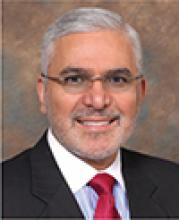Neurocognitive impairment—especially of memory—has been documented in several major psychiatric disorders, including schizophrenia, bipolar mania, and major depressive disorder, and is linked to functional disability.
Psychiatric researchers are feverishly developing and testing medications to improve episodic, visuospatial, and working memory. A coalition of academic researchers, the pharmaceutical industry, the FDA, and the National Institute of Mental Health has collaborated to develop a standard cognitive battery for schizophrenia in a project called MATRICS—Measurement and Treatment Research to Improve Cognition in Schizophrenia. Controlled clinical trials currently are underway using various mechanisms of action, but no cognition-enhancing agent has been FDA-approved for schizo-phrenia or any other psychiatric disorder. Acetylcholinesterase inhibitors, approved for Alzheimer’s dementia, have not demonstrated efficacy in mental illness.
What can practitioners do to help their patients’ neurocognitive functions, especially memory? There are many causes for secondary memory deficits besides primary memory dysfunction, which is part of the neurobiology of severe psychiatric brain disorders. Therapeutic strategies to avoid or reverse secondary cognitive impairment can preserve patients’ cognitive reserve until evidence-based pharmacotherapies or somatic therapies such as neurostimulation are available. One or more of the following tactics may be useful:
Avoid anticholinergic medications. Anticholinergic agents can seriously impair memory. If a psychotic patient develops extrapyramidal symptoms, consider reducing the antipsychotic dose instead of adding benztropine. Avoid using older antidepressants or antipsychotics with strong anticholinergic effects.
Avoid long-term benzodiazepine use. Benzodiazepines impair memory and should be used only occasionally.
Help patients lose weight. Many psychiatric patients are overweight, and studies have linked a body mass index of ≥25 with memory decrement in the general population1 and in persons with schizophrenia.2 Helping patients change their lifestyle habits (diet and exercise) can not only reduce early cardiovascular mortality but also restore some memory capacity.
Prescribe regular exercise. In addition to improving cardiovascular fitness and helping reduce memory-impairing intra-abdominal fat, at the brain level regular exercise stimulates the production of progenitor cells in the hippocampus—the brain’s memory center—that can grow and mature into neurons and glia. There is no easier and safer way to sharpen memory than regular exercise. Brisk walking for 30 minutes or more every day will bring on cognitive benefits and slow brain aging.
Encourage stimulating activities. Birds placed in colorful, stimulating cages with a new décor every day develop brains that are 10% to 20% larger than birds placed in ordinary cages without environmental stimulation. The same principle applies to humans. Brain stimulation with crossword puzzles, chess, backgammon, puzzles, video games, or exposure to novel activities on a regular basis can help progenitor cells produced in the hippocampus mature into full-fledged neurons. Combining physical exercise to proliferate neurogenesis with mental exercise to grow and mature the newborn neurons is arguably the best formula for a sharper memory. 3
Avoid sedating medications. Somnolence and sedation caused by some psychotropic agents can slow cognitive processes and impair information processing and memory consolidation and retrieval.
Lower patients’ blood pressure. Studies have linked hypertension to memory decline.4 Treating hypertension can restore baseline memory.
Treat obstructive sleep apnea (OSA). Repeated cerebral ischemia caused by nocturnal apnea—which occurs in many obese patients—is associated with cognitive decline, adding insult to injury in patients with primary memory impairment, such as schizophrenia. Continuous positive airway pressure is a standard treatment for OSA and can help patients avoid serious drops in blood oxygen saturation caused by lack of normal breathing.
Recommend omega-3 fatty acid supplements. Although no direct relationship has been established between omega-3 fatty acids and memory enhancement, the potent anti-inflammatory effects of omega-3 fatty acids may reduce the detrimental effects of cerebral inflammation caused by pro-inflammatory factors produced in the periomental (visceral) adiposity in obese and highly obese individuals with big bellies.
Until definitive treatments become available for the primary memory deficits of patients with schizophrenia, bipolar disorder, or major depressive disorder, these interventions can help preserve and even grow the baseline “cognitive capital” of those patients. Above all, preventing psychotic, manic, or depressive relapses is of paramount importance because such episodes appear to have “neurotoxic” effects and are associated with atrophic brain changes. Nothing is more devastating to neurocognition than brain tissue loss and cortical atrophy. It would not be surprising if future memory-enhancing drugs will have strong neuroprotective properties that enhance neuroplasticity and neuroregeneration.


